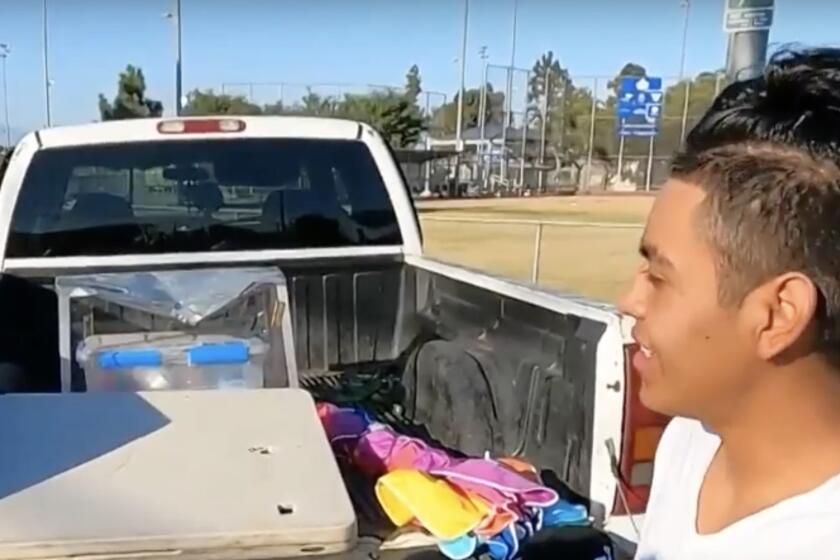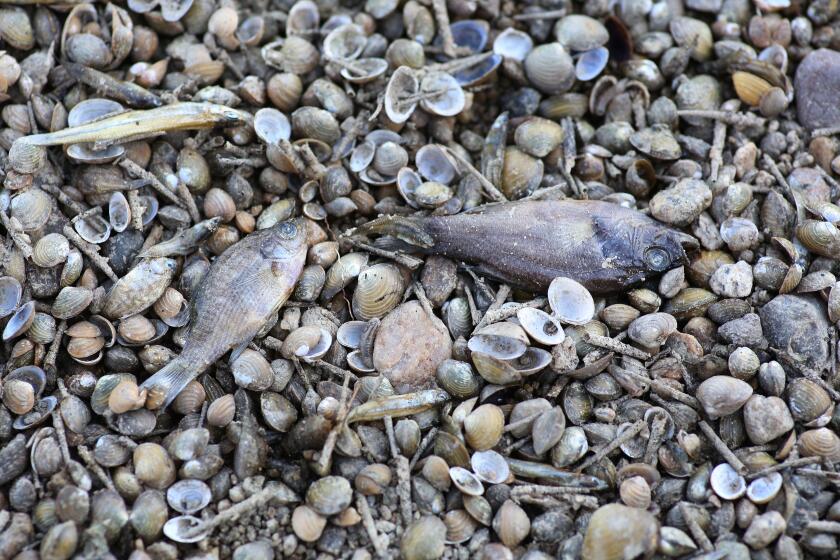Air panel proposes tougher regulations for ports
Southern California air regulators proposed tougher rules Friday to ensure that the ports of Los Angeles and Long Beach reduce their share of deadly emissions from ships, trains, big rigs and cargo-handling equipment, prompting harsh objections from harbor officials.
The so-called backstop rules, unveiled during a South Coast Air Quality Management District governing board meeting in Long Beach, would enable regulators to enforce the voluntary pollution reduction targets set by the ports to control soot and smog over the next decade and impose financial penalties if needed.
Each year, pollution from the movement of goods through the region contributes to an estimated 2,100 early deaths, 190,000 sick days for workers, and 360,000 school absences, according to the California Air Resources Board. More than 40% of all containerized cargo entering the United States flows through the adjacent ports.
“The purpose of the backstop rule is to provide a safety net for the region in the event that the ports fall behind in implementing their own voluntary clean air plans, or even abandon them,” said Barry Wallerstein, executive officer of the AQMD. “If the region does not have a mechanism in place to correct its own clean air plans and keep them on track, the federal government could step in and adopt its own rules for us.”
“The federal government has the power to cut off federal transportation funding,” he added. “So either we create a backstop rule, or the federal government adopts regulations for us. Which one do the ports prefer?”
But Geraldine Knatz, executive director of the Port of Los Angeles, said, “We don’t think we need a backstop rule and we are not willing to support financial penalties. They want us to impose fines on our customers and that is not something we are willing do in the middle of an economic downturn.”
Port officials said they are ahead of schedule in reducing regional air pollution under their voluntary Clean Air Action Plan. The plan’s achievements over the last four years include the replacement of 6,300 old, dirty diesel trucks with newer, cleaner models, an increase in vessels using low-sulfur fuel and a 20% reduction in diesel particulates.
The backstop rule’s enforcement mechanisms will be determined in future hearings, AQMD officials said.
As it stands, maximum penalties for violation of air pollution laws range from $25,000 per day per infraction up to $1 million a day, officials said.
The backstop rule was supported by environmental justice activists in the dense corridor that runs from the massive port complex through working-class neighborhoods that line the 710 Freeway: Wilmington, Carson, Compton, Huntington Park and Commerce.
“Without the backstop rule, the ports will continue to operate on a hope and a dream,” said Angelo Logan, executive director of East Yard Communities for Environmental Justice. “We prefer clarity and consequences.”
louis.sahagun@latimes. com
More to Read
Sign up for Essential California
The most important California stories and recommendations in your inbox every morning.
You may occasionally receive promotional content from the Los Angeles Times.











